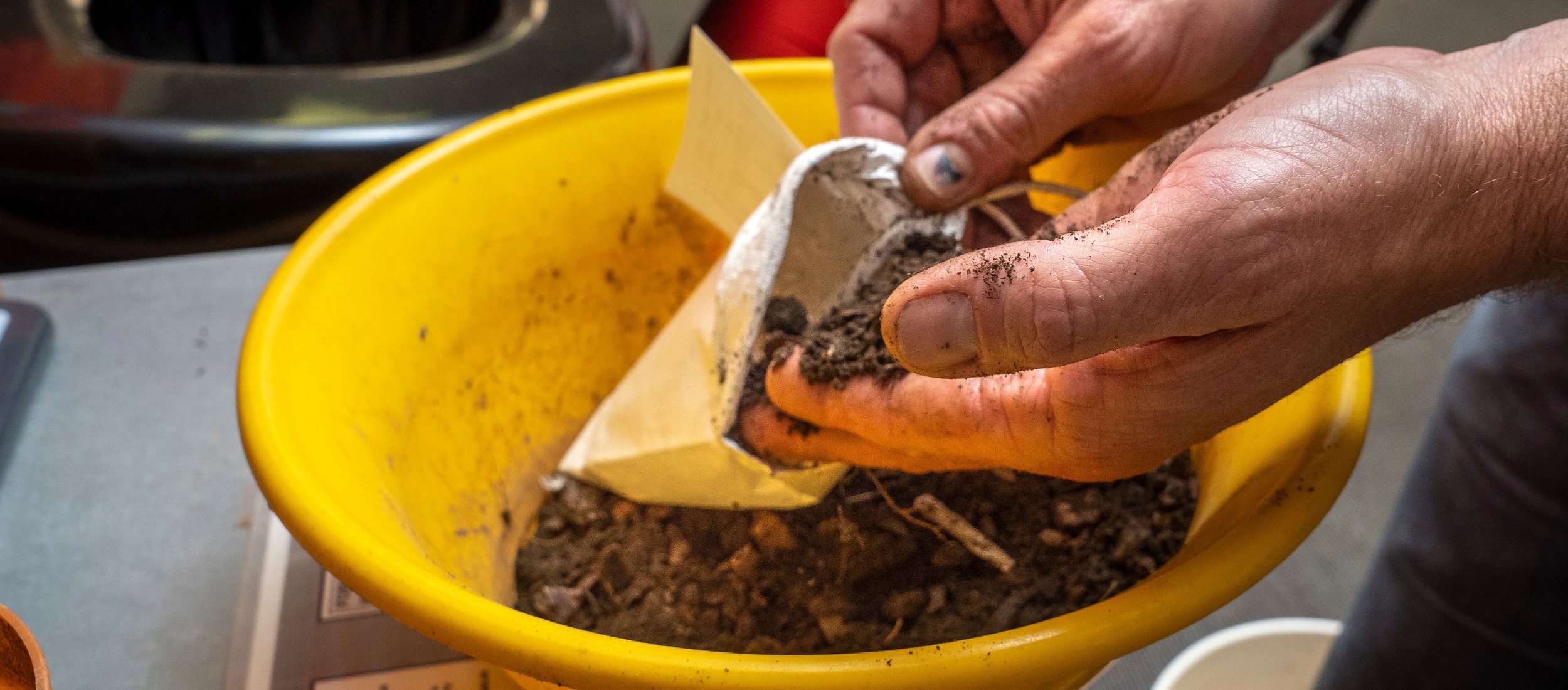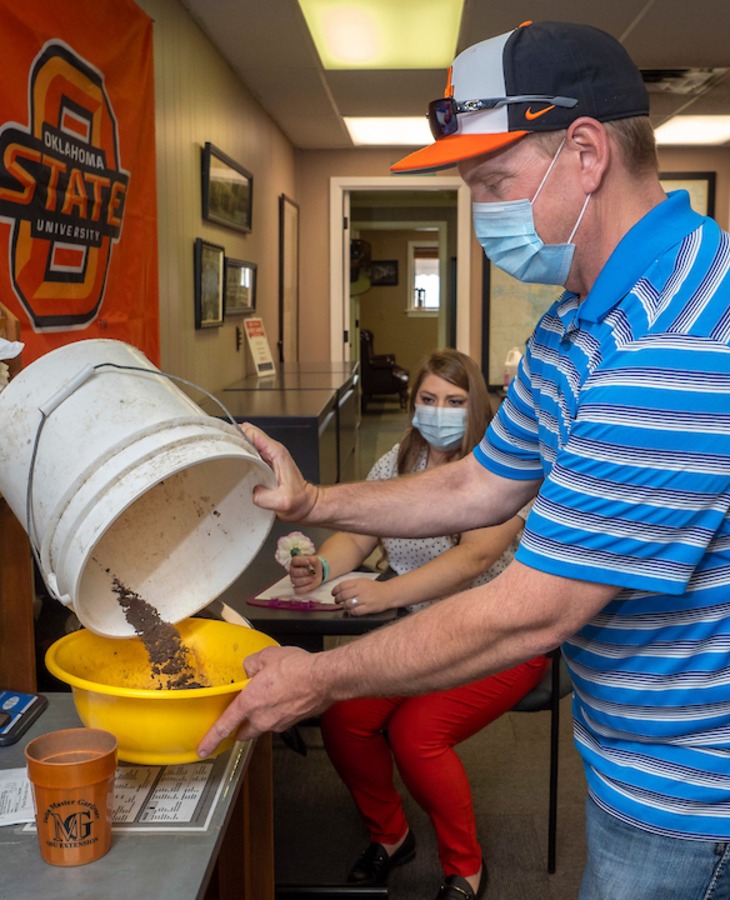
Producers save money, boost yields with OSU soil testing
Monday, April 19, 2021
Media Contact: Gail Ellis | Communications Specialist, Copywriter | 620-515-2498 | gail.ellis@okstate.edu
Oklahoma State University is a national leader in soil, water and forage testing. The commercial laboratory processes more than 60,000 samples a year and is accessible to the public through OSU Extension.
From cattle ranchers to urban gardeners, the state testing facility helps producers save money, increase yields and protect the environment. In Tulsa County, the OSU Extension office is a seasonal hot spot for vegetable growers and lawn care specialists seeking nutrient analysis of their soil.
Brian Jervis, Tulsa County Extension educator and horticulture specialist, said his office collects more than 1,500 samples a year and is the first stop for many nurseries and greenhouses.
“Whether it’s a problem with their vegetables or a question about turf varieties, soil testing is the first thing we recommend to clients,” he said.

Tulsa County Extension personnel help members of the public fill out the inquiry forms that accompany a soil, water or forage sample. Clients often are interested in OSU’s chemical analysis for projects related to lawn care, gardening and the planting of fruit trees. For basic lawn testing, they are advised to take 15-20 cores from each sampling area using a soil probe that extracts a 6-inch profile. Casey Hentges, OSU consumer horticulture specialist, demonstrates how to take a sample and bust up the cores in a bucket in this episode of Oklahoma Gardening.
Once the soil is blended and any visible plant material and rocks are removed, the sample is placed in a Ziploc bag or special sample bag available at all county Extension offices. The soil is mailed to the state lab in Stillwater where Hailin Zhang, lab director and OSU Extension nutrient management specialist, oversees all analysis.
“The routine soil tests are the most important we offer, and reports are typically posted online within two working days after samples are received by the lab,” Zhang said.
At a nominal cost of $10 per sample, the routine soil analysis measures a sample’s nitrogen, phosphorous, potassium and pH levels. Organic matter, salinity, texture, secondary nutrients and micronutrients can be evaluated for an additional fee. The lab offers three types of water testing: livestock, irrigation and household use. Farmers and ranchers also utilize the lab’s services for determining the nutrient levels in animal waste and the nitrate, protein and fiber amounts of forage for livestock.
“We’re helping farmers and homeowners achieve yields while minimizing the impact of fertilization on the environment,” Zhang said. “Without a soil profile, we can’t know if producers are hurting yields by underapplying fertilizer or wasting money by overapplying. These tests help them make a more economical and environmentally friendly decision.”
The OSU facility includes a lab coordinator, full-time technicians, office staff and part-time undergraduate student technicians. Zhang said many of the students work in the lab for their entire college careers before beginning graduate school or becoming professional analysts at labs nationwide.
“This lab has been in the same location since the 1960s, and it’s an invaluable service to anyone in Oklahoma and across the country,” lab coordinator Kendal Henderson said.
Once soil samples arrive in the lab, they are assigned an identification number, dried in an oven and ground into tiny particles. A liquid solution is added to the material to extract the elements as calibrated instruments shake and filter the soil for analysis.
County Extension educators regularly assist clients with interpreting the soil reports to recommend efficient fertilizer usage, but David Nowlin, Caddo County Extension educator, said the analysis is part of a working relationship between farmers, ranchers and co-ops in his area. Many of the results from Caddo County samples are sent directly to an agronomist at the local co-op who helps producers develop the best fertilizer application plan for their budget.
“Fertilizer prices went high this spring, and nitrogen prices are going up, so an agronomist at the co-op might suggest planting a legume crop, such as peanuts or soybeans, to reduce the need for nitrogen,” Nowlin said.
In Caddo County where commodities range from peanuts and cotton to soybeans and corn, much of the cropland is irrigated. The added expense of irrigation poses a higher financial risk for farmers, and they are more likely to routinely test their fields for potential savings.
“Soil sampling is one of the lowest-cost, highest return-on-investment endeavors you can do for your ranch, farm, enterprise or garden,” said Brian Arnall, soil research and Extension specialist.
Testing soil, water, forage and animal waste provides sustainability in management while offering reliable analysis from a nationally respected lab that operates at optimum efficiency.
“The lab is commercial but prioritizes producers,” Arnall said. “And while its results are built for farmers and ranchers, it’s good enough for researchers like me who demand accuracy and precision.”
To learn more about collecting or submitting a soil, water, forage or animal waste sample, contact the educator at your county Extension office.
